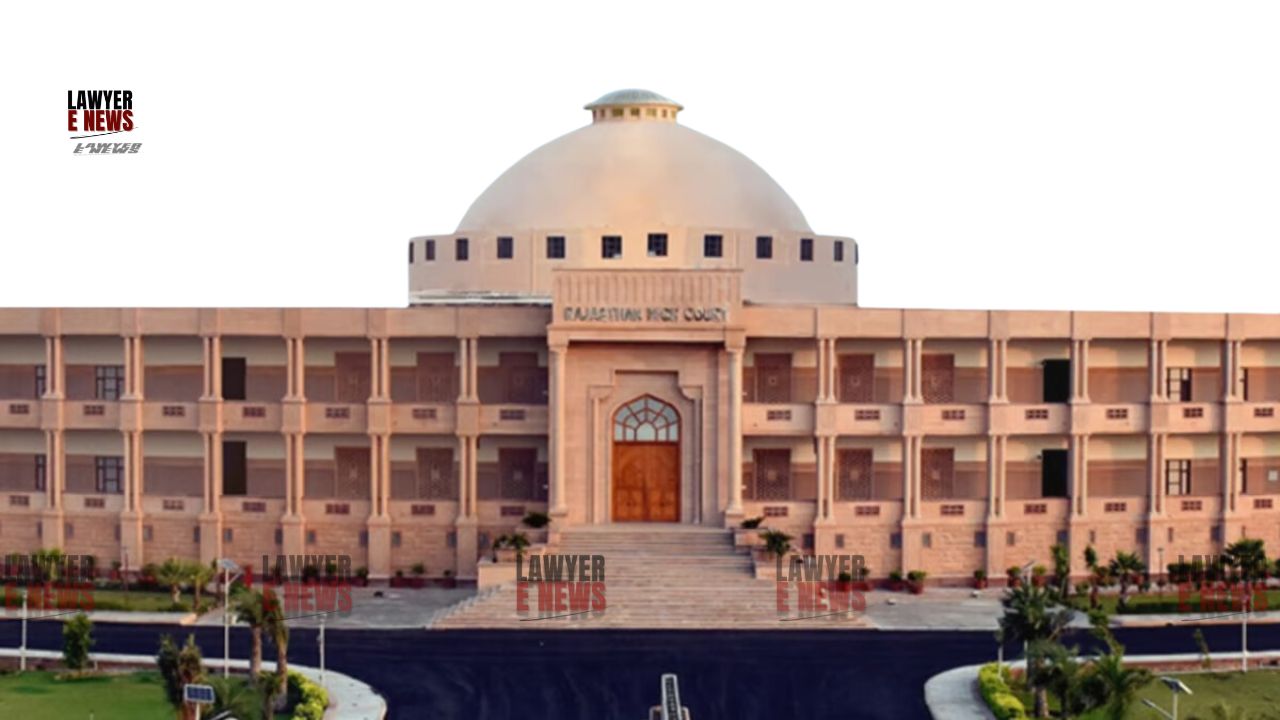-
by Admin
18 February 2026 4:37 AM



“Section 18(iii) of the 1989 Act is applicable to all employees — temporary or permanent — and mandates prior approval of the Director before termination.” - In a batch of petitions Rajasthan High Court upheld the Tribunal’s judgment reinstating several teaching and non-teaching staff whose services were abruptly terminated by the petitioner school management after fixed-term contracts ended. Justice Anoop Kumar Dhand, rejecting the petitions, held that the termination orders were in violation of Section 18(iii) of the Rajasthan Non-Government Educational Institutions Act, 1989, which applies equally to fixed-term or contractual employees.
“No person can be left remediless — even temporary appointees are entitled to protection under the Act of 1989.”
The petitioners — management committees of various D.A.V. Schools in Ajmer — had challenged the Tribunal’s common judgment dated 14.09.2016 which set aside the termination of multiple teachers and ordered their reinstatement with all consequential benefits. The petitioners contended that the employees were purely contractual, appointed for a limited term, and their contracts naturally expired, requiring no formal dismissal proceedings or approvals under the law.
The respondents argued that despite being appointed after a selection process, their contracts were labelled as temporary to avoid regularisation and benefits. Their abrupt termination without any notice or compliance with statutory safeguards led to their appeal before the Tribunal.
“Equity will not suffer a wrong without a remedy… the principle of ubi jus ibi remedium must be applied.”
The High Court rejected the school management’s argument that Section 18 and Rule 39 of the 1993 Rules were not applicable to fixed-term employees. Referring to constitutional principles and equity, the Court observed:
“The law is settled that in every case where a man is wronged and endamaged, he must have a remedy. It is the Court’s responsibility to protect and preserve the right of parties and to support them, rather than refusing the relief.”
The Court held that Section 18(iii) specifically mandates: “Where the managing committee is of unanimous opinion that the services of an employee cannot be continued without prejudice to the interest of the institution, the services of such employee are terminated after giving him six months’ notice or salary in lieu thereof and the consent of the Director of Education is obtained in writing.”
Importantly, the Court held that the word “employee” in Section 2(i) of the Act covers both permanent and temporary staff, and therefore procedural safeguards apply to all.
On the failure of the respondents to produce appointment process documents, the Court acknowledged: “There was neither any advertisement nor any approval of the State Government… however, their termination without notice or approval still violates the protective mechanism of Section 18(iii).”
“Teachers of private institutions are not to be subjected to arbitrary ad-hocism by school managements… The 1989 Act is a social legislation to curb such exploitation.”
The Court further observed that the purpose of the Act was to curb misuse by private educational institutions:
“The Act is intended to check malpractices and arbitrary hiring and firing by unscrupulous school managements. Temporary employment cannot be used as a device to deprive employees of statutory protection.”
Citing multiple judgments including Bhopalwala Arya Higher Secondary School v. Nand Lal Saraswat, the Court affirmed that even fixed-term employees cannot be terminated without following due process including prior approval of the Director.
Dismissing the batch of writ petitions, the Rajasthan High Court upheld the Tribunal’s orders reinstating the employees. The Court ruled:
“Section 18(iii) and Rule 39 of the 1993 Rules are applicable to all employees, irrespective of whether they are temporary or permanent. The school management violated mandatory provisions by terminating the employees without Director’s approval.”
This decision sets a significant precedent for contractual staff in private unaided institutions, reinforcing that constitutional protections and statutory safeguards extend to all categories of employees in recognized educational institutions.
Date of Decision: 8th April 2025
